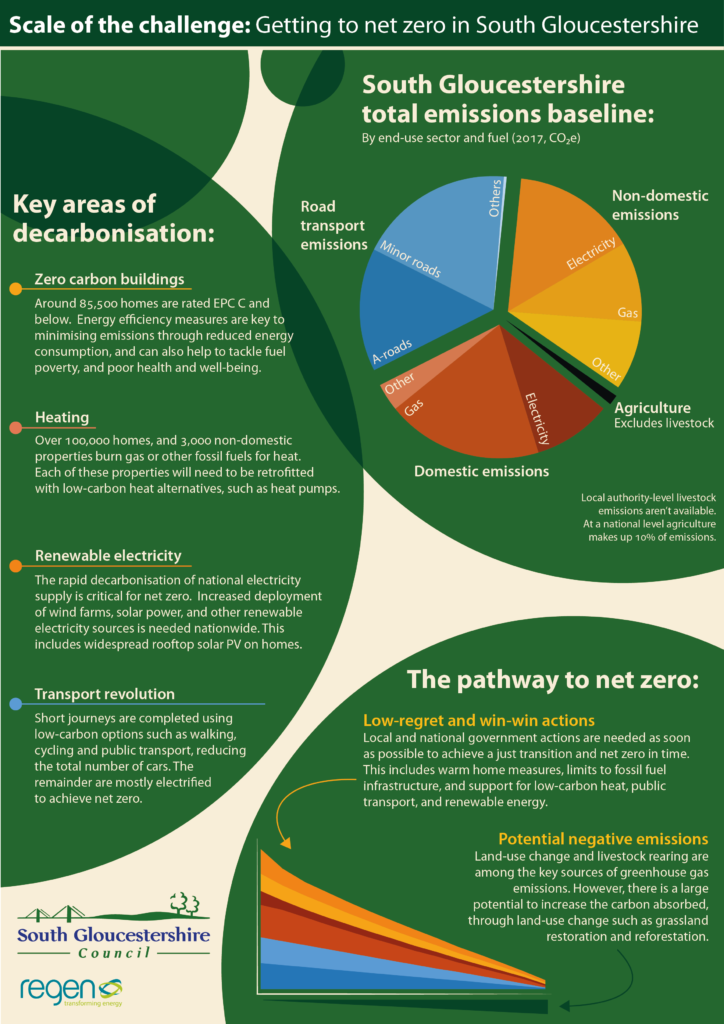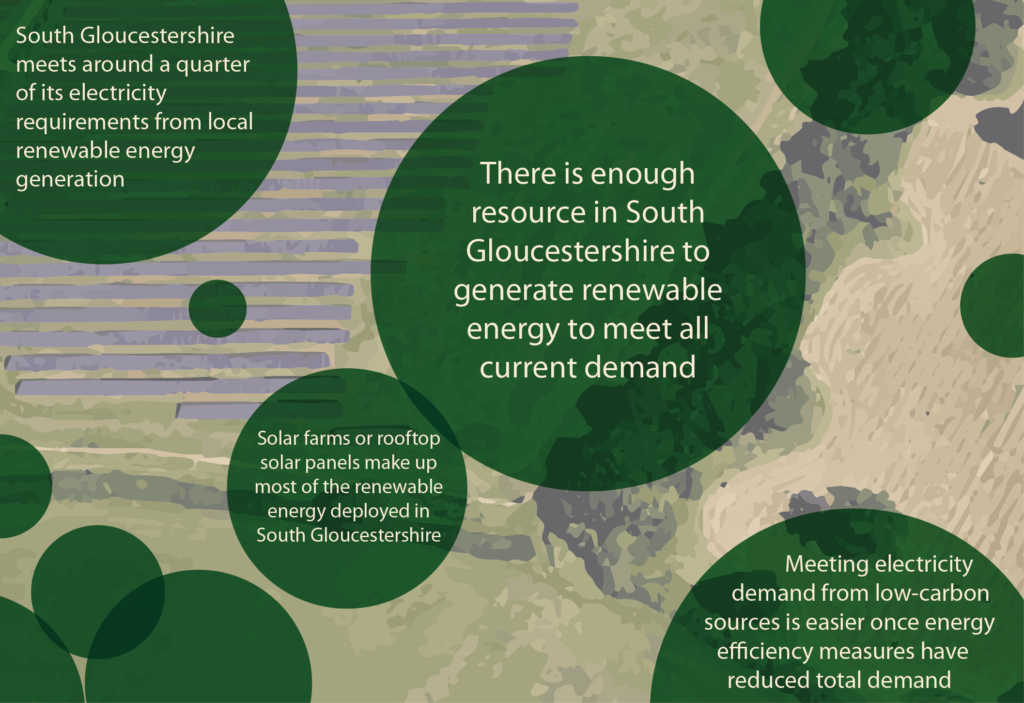Project duration: October 2019 – Jan 2020
Regen has worked with South Gloucestershire council to assess the carbon emissions from the area, to aid their next steps following a declaration of a climate emergency.
Local authorities, government and community groups have responded to the climate crisis by declaring a climate emergency. Regen’s work in this area has been to provide evidence and datasets, as well as communications materials, so that communities and local government can act and set policy in a targeted way.
As well as the total current emissions for the area, Regen also assessed the emissions from the council specifically, and the potential pathways to net zero emissions for the area. For this, we analysed the energy efficiency measures and current heating technologies installed in domestic and non-domestic properties across the district, the renewable energy generation installed and potential for further renewable energy development. A database of emissions and various communications-materials were produced, to help the council plan their pathway to net zero and to communicate the scale of the challenge across all sectors to stakeholders.
Key highlights:
• Carbon emissions have reduced in some areas, but others – like transport, and heat – remain stable
Total carbon emissions have fallen since 2005, with a reduction in industrial emissions, and emissions from electricity consumption. However, emissions from transport and heating have remained relatively stable. The three sectors emitting carbon emissions from energy use are similar in volume of emissions: the domestic, non-domestic, and transport sectors.
• Emissions reductions – and any net zero scenario – is dependent on both local actions and national policy
Development of whole-house retrofit programmes, contracts for the treatment of waste, coordination and engagement with key private sector stakeholders, and public transport planning are all low-carbon levers which are impacted locally, however decarbonisation of the electricity supply, national planning policy for renewable energy, and funding for local authority actions are all controlled at a national level.
• Domestic heating is a large challenge area, but one with solutions readily available
Around 100,000 homes in South Gloucestershire will need low-carbon heating installed to achieve net-zero, as well 1,000s of non-domestic properties. Energy efficiency improvements are critical in this transition, and will need innovative programmes as well as local decision-making and stakeholder engagement. Energy efficiency improvements reduce the scale of the challenge of decarbonisation, as well as potentially reducing energy bills and improving wellbeing standards.
The resulting database allows South Gloucestershire Council to tailor policy towards critical areas, and begin to map out the pathway to net zero.
As well as the database of emissions and the above summary poster, Regen also produced summary infographics on renewable energy, the built environment, and land-use and land-use change.
To read more about the Climate change strategy of the South Gloucestershire Council, click here.
Regen has worked on a similar analysis for Bristol City Council, to read more please click here.

If you are interested in finding out more about this work, please contact Frankie Mayo at fmayo@regen.co.uk.






